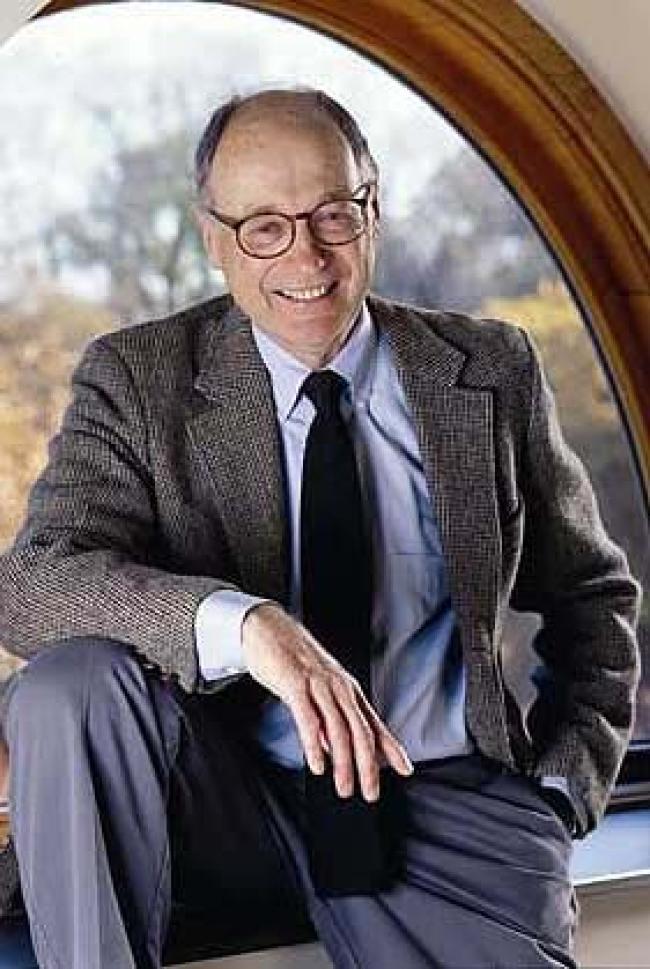J. Thomas Tredway (1935-2022)
Seventh president of Augustana College, 1975-2003

Born in the working-class neighborhood of North Tonawanda, N.Y., in 1935, Tredway attended North Park College in Chicago before transferring to Augustana. After graduating in 1957, he earned a master's in history from the University of Illinois, a bachelor of divinity degree from Garrett Theological Seminary, and a doctorate in history from Northwestern University.
He served as a student pastor, but did not take a call to the ministry. In 1964, Tredway returned to Augustana as a history instructor. He was named academic dean in 1970 and president five years later.
Tredway's presidency saw large changes for higher education. Small liberal arts colleges faced increased pressures that threatened their well being. Prospective students were attracted by junior colleges and state universities, and by the seeming practicality of career training. State and federal aid became less certain in the 1980s and 1990s, at a time when incoming students demanded more and costs soared. Augustana faced individual challenges, including a weakening of the importance for its students of the Swedish ethnic connection and the Lutheran church.
Many other small colleges responded to such challenges by adding adult education, graduate programs, distance learning, and satellite campuses. In the Tredway years, Augustana retained its liberal arts focus for a traditional college-age student body living on or near campus. Maintaining a steady enrollment at approximately 2,100 students, the college was able to grow in ways that enhanced its educational mission.
New buildings were added to the campus, including a beautifully designed and much used library; a $23 million, 100,000 square-foot building for biology, chemistry, and physics; a $7.5 million center for computer science, mathematics, and computer services, as well as extensive renovations to existing buildings for geology and geography, foreign languages, and the arts.
Tredway worked to create Augustana's foreign-study program, visiting European sites himself to set up the first program. The college endowment grew almost 20-fold, from $4 to $72 million.
Tredway saw the faculty as the center of the college's educational life. The full-time faculty grew from 113 in 1975 to 141 in 2003, as did the percentage of faculty members with the highest degree in their field, from 63 percent to 91 percent. A former teacher, Tredway emphasized faculty input and collaboration in decision making, including two major revisions of curriculum. He expanded the faculty governance system begun by Sorensen, including the formation of committees that made recommendations for tenure and promotion, benefits, and academic policy.
Tredway sought to keep faculty salaries for all academic ranks in the upper 20 percent nationally, and he strove to create teaching conditions that gave faculty time to work with students, including a reduction on teaching load in the early 1990s. He established the first fully endowed academic chairs.
Tredway continued Augustana's tradition of Lutheran ecumenicism and openness. In the 1980s he was one of three Americans who represented U.S. Lutheranism in a dialogue with theologians of other major Christian faiths sponsored by the Lutheran World Federation. At Augustana, advocating the Lutheran theological position of "the two kingdoms," he argued against a rigid view in which religious belief trumped human knowledge. At a church-related college, faculty should be free to pursue knowledge in ways honest to their academic disciplines. But he also asserted that the criteria of academic inquiry should be challenged by an evolving Christian gospel offered to humans by a free God.
Tredway was known for his intelligence, humor, and concern for people at Augustana. A believer in the liberating value of broad academic study, Tredway was a leader who, while remembering the college's roots, guided the institution successfully through challenging times.
